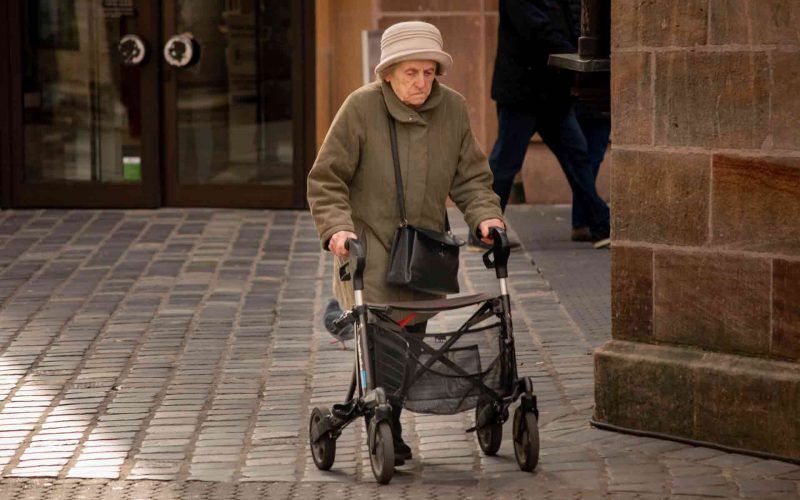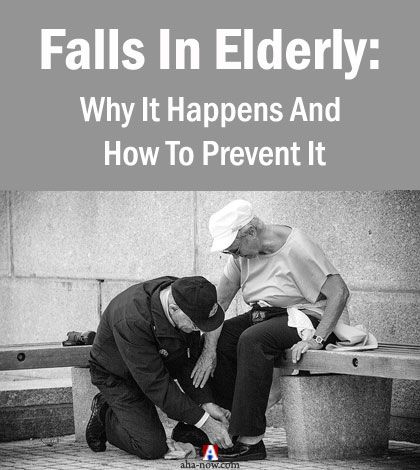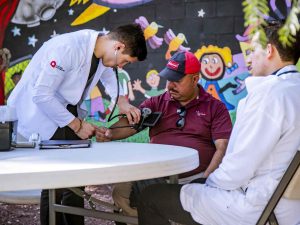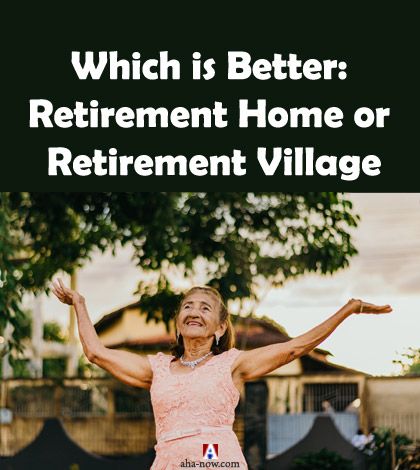Falls In Elderly: Why It Happens And How To Prevent It

Table of Contents
The elderly are susceptible to falls. In fact, falls in the elderly are one of the major reasons for injury and even death. The caretaker has to understand the reasons for the falls and the ways to prevent them. Not only they should equip the house with features and facilities especially meant for senior citizens, but the elderly should also routinely exercise and get a physical examination done. Here’s all that you should know to prevent the falling of your loved elderly members of the family. ~ Ed.

Falls can cause serious problems, especially for the elderly. As we get older, we tend to become more fragile, less stable, and our bones are not as firm as they once were.
Not just our weaker bones, our muscles, and tendons also become less flexible. It means we can’t support our body weight as we used to be and as a result, older people are much more susceptible to fall than younger people.
These falls often cause minor injuries like bruises, cuts, and broken bones. Sometimes, however, they can lead to serious injuries like broken hips, head injuries, hip fractures, and even death.
Fortunately, falls are preventable. By understanding factors that are most likely attributed to the event and implementing the following strategies, you can reduce your or your aging loved ones’ chances of falling and help them stay safe and live independently.
3 Factors that Cause Falling in Elderly
There are several common factors of why older people are more prone to falling:
Decline in Physical Condition
Throughout the years our body experiences many inevitable changes that eventually result in deterioration of balance, flexibility, bone mass, and muscle strength. These conditions often leave you feeling unsteady and harder to lift your feet when walking. Second, one factor which causes falling in older people is because they experience eyesight decline as their vision is not as clear as before, and have difficulty identifying objects in front of them.
Chronic Disease and its Medication
Most of the elderly may suffer at least one chronic disease like strokes, heart problems, diabetes, thyroid problem, arthritis, or any other conditions. Often, some medications to treat these diseases have side effects of dizziness, sleepiness, and low blood pressure, all of which can contribute to the accident.
Related Posts
Environment
It’s tremendously important to modify the environment where your aging relatives live into a safer condition. These are simple things that might be potential dangers that may lead to a fall, for instance; unnecessary items on the ground, unorganized rooms, slippery bathrooms, wet floor, poor lighting room, clutter, loose carpets, etc.
4 Ways to Reduce Fall Risk
Although sometimes incidents are difficult to avoid, you can take the following actions to reduce chances of falling:
Schedule Routine Exercise
By incorporating exercise into our daily routine, we can counteract the deterioration in the physical condition of the elderly. Regular exercise of 15 to 30 minutes a day will keep your body flexible, stable, and stronger.
The choices may vary, ranging from walking, light exercising like tai chi, regular stretching, yoga, etc. However, a customized exercise is still preferable because everyone has different body needs and circumstances.
Annual Physical Examination
Medical experts highly recommended to do a regular physical examination if you are over the age of 65 to evaluate your overall health at least once a year. The purpose of this routine is to detect any potential issues or symptoms that may become health concerns in the future, therefore these problems can be treated during their early stage.
Moreover, this is a splendid chance for the doctor to review your prescribed medications with the current conditions. The doctor will also listen to your concerns and you can openly communicate to him/her if you are experiencing any side effects from the medications, such as dizziness or muscle weakness that may affect your balance and resulting in a fall.
Keep Your Home Well Organized and Well-Lit
One simple way to keep you or your aging relatives safe from incidents, particularly falling, is to ensure that your home is neat at all times. You can start by decluttering unnecessary items to make more space. Pick up miscellaneous things that are scattered on the floor and reorganize the entire room to create a safer environment for the elderly.
More practical things include; install grab bars in the bathrooms for some support while getting in or out of the bathtub, add double-sided tape on the bottom of your rug to prevent people from slipping while stepping onto it and ensure proper lighting in each room.
Get Proper Footwear or a Walking Aid
Re-check your footwear’s condition. It is supposed to fit well to your feet and should have anti-slip soles. Experts recommend shoes with velcro straps for the elderly in comparison to lace-up shoes that can lead to tripping.
For extra comfort, you can add a good pair of quality of shoe insoles to reduce foot and heel pain due to long periods of walking or standing. Other than that, in some cases, doctors may suggest getting mobility aid devices like a cane, walker, or even a motorized scooter to help you feel steady when moving around.
Summing Up
One should never underestimate the falls in the elderly, since these incidents can lead to serious injury or even death. Understanding the cause and implementing the strategies of preventing falls can help you or your older relatives to gain more confidence, feeling secure, and live life to the fullest without the fear of losing your balance.
Over to you
Do you have aging relatives that live under the same roof with you? What are your strategies to prevent or reduce their chances of falling? Share your tips and experiences in the comment down below.
Disclaimer: We're not offering any medical advice here. These ideas are for educational and entertainment purposes only. Always seek a professional medical opinion from a physician of your choosing before making any medical decision. The information provided here is not intended to be a substitute to the advice given by your physician or another healthcare professional.
Disclaimer: Though the views expressed are of the author’s own, this article has been checked for its authenticity of information and resource links provided for a better and deeper understanding of the subject matter. However, you're suggested to make your diligent research and consult subject experts to decide what is best for you. If you spot any factual errors, spelling, or grammatical mistakes in the article, please report at [email protected]. Thanks.














